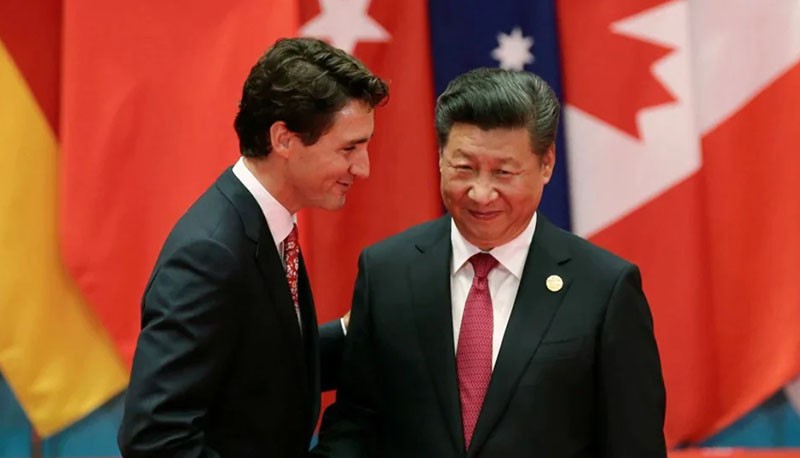 Canada-China
Canada-China
Beijing’s blueprint for diaspora influence: What Canada must learn from the 2021 election report
In October 2021, the All-China Federation of Returned Overseas Chinese (ACFROC), a Chinese government-backed organization, released a report that should concern every Canadian invested in the health of Canadian democracy.
The report outlines a strategy for leveraging the political influence of diaspora communities to advance the People’s Republic of China’s (PRC) goals in Canada.
It highlights the successes of Sikh leaders in mobilizing voters and fundraising, suggesting that Chinese Canadians can adopt similar tactics. This document is more than an analysis—it is a playbook for political manipulation.
The ACFROC report praises Sikh leaders for their ability to shape Canadian political discourse, citing their influence in pressing the Trudeau government to amend a report on terrorism threats.
Despite acknowledging the historical stigma Canadian Sikhs faced after the 1985 Air India bombing, the report focuses on their success in building voter blocs and fostering unity.
This is not just admiration; it is strategic emulation. Beijing sees the Sikh community’s ability to organize and influence as a template for Chinese Canadians, with the explicit aim of advancing PRC-aligned objectives under the guise of fostering inclusion and diversity.
The report’s recommendations are chillingly strategic. It urges Chinese Canadians to strengthen internal cohesion, reduce divisions, and build ethnic associations capable of influencing policy.
It advises adopting campaign messages that resonate with Canadian values of multiculturalism while subtly promoting PRC interests. Such efforts exploit Canada’s open society and growing ethnic diversity, turning the country’s democratic principles into potential vulnerabilities.
More ominously, the report hints at interference in Canada’s future political contests, including the Conservative Party’s 2022 leadership race.
It speculates on the role of China, India, and Khalistan community leaders in backing candidates who could shape Canada’s next government.
This is a stark reminder that political influence is not confined to domestic forces; foreign governments are keenly aware of Canada’s pivotal position in global geopolitics and its ethnic makeup as a tool for advancing their agendas.
While the report’s primary audience is Beijing, its revelations should serve as a wake-up call for Canada.
The PRC’s ability to co-opt diaspora communities to influence foreign governments is well-documented in other contexts, such as Australia and the United States.
Canada must take proactive steps to safeguard its political system from such interference.
First, transparency is critical. Political parties should be required to disclose foreign funding and associations with overseas organizations.
Second, Canada must invest in public education about the risks of foreign influence, ensuring that diaspora communities understand how their genuine engagement in civic life could be co-opted by hostile actors.
Third, intelligence and law enforcement agencies must monitor and address instances of interference, while protecting the civil liberties of diaspora communities.
Finally, Canada must reaffirm its commitment to multiculturalism without naïveté. Diversity used to be one of Canada’s greatest strengths, but it cannot come at the expense of sovereignty.
Supporting diaspora communities in building civic capacity is essential, but so is ensuring that this engagement is rooted in Canadian values, free from foreign manipulation.
Beijing’s 2021 report is both a blueprint and a warning. Canada must act decisively to protect its democracy from the specter of foreign influence.
If we fail, we risk not only losing control of the political system but also undermining the trust that makes democracy stronger.
(Image and Text courtesy: Khalsavox.com)
Support Our Journalism
We cannot do without you.. your contribution supports unbiased journalism
IBNS is not driven by any ism- not wokeism, not racism, not skewed secularism, not hyper right-wing or left liberal ideals, nor by any hardline religious beliefs or hyper nationalism. We want to serve you good old objective news, as they are. We do not judge or preach. We let people decide for themselves. We only try to present factual and well-sourced news.







